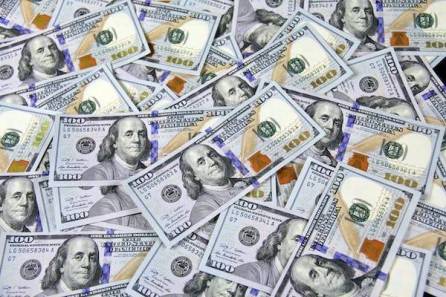Nikola Tesla, a Serbian inventor who was 28 years old at the time, traveled to the United States from Paris in 1884. He brought with him a letter of recommendation that had been written to one of the most well-known businesses in American history, Thomas Edison.
The two brilliant individuals first collaborated on a project together before veering into competition with one another, which ultimately resulted in a worldwide electrical revolution. Tesla, of course, rose to fame as the unrivaled leader in his field for more than a century.
The invention that Tesla came up with gained him notoriety and respect, and he became so affluent as a result that the royalties he received for developing alternating current were worth millions of dollars.
If he had been a better capitalist, he undoubtedly would have become the first billionaire. It was only a matter of time.
The First Job Of Nikola Tesla
The first work the 28-year-old man ever had was at Edison General Electric, and he made 18 dollars every week there.
Thomas Edison dared Nikola to redesign the Direct Current again with improvements and offered him a bonus of $50,000 in exchange for doing so. Nikola did so and triumphantly succeeded within two months.
Edison, impressed by Tesla’s tenacity, declined to pay him the incentive; nevertheless, Tesla’s salary was raised by $10; following this promotion, Tesla resigned from his position.
Thomas Compared To Edison
Thomas Edison was the first person to pave the way for the hope of light in 1880. He did this by establishing his firm, Edison General Electric, and inventing direct current (DC). At the time, no home even dreamed of having electricity.
On the other hand, Nikola Tesla established his company, Tesla Electric Company, in the month of April in the year 1887. There, he presented his innovation, which was the most astonishing of all: the Alternating Current (AC). This invention proved to be a thousand times superior than DC current, both in terms of efficiency and cost.
As word spread, Tesla was approached by Westinghouse Electric & Manufacturing Company, who offered him a massive deal to license his invention in exchange for a license fee. Tesla accepted the offer.
In the year 1888, Nikola Tesla and George Westinghouse came to an agreement to license Tesla’s patent. In exchange, Tesla was given the sum of $60,000, 150 shares in stock, and a $2.50 royalty per horsepower generated by an AC motor. Additionally, George Westinghouse offered Tesla a salary of $2,000 per month to work at Westinghouse, which is equivalent to approximately $1.4 million in today’s dollars.
Deconstructing The Million Dollars In Fortune
Edison, upon seeing Tesla’s success, was unable to maintain his composure, and as a form of rebellion, he began spreading tales about how the AC system was extremely dangerous, smearing Tesla’s name in the process.
Unfortunately, Westinghouse is going to have to deal with a significant financial setback. In 1907, after about twenty years of fighting an electric battle with Edison, the Westinghouse Company was $10 million in debt. In order to prevent the company from going bankrupt, George Westinghouse requested that Tesla reduce his royalty payment.
Tesla was thankful to George for believing in him when no one else did; he tore apart the original contract because he was too good for the world, which meant he gave up his royalties and canceled the contract. Tesla was grateful to George for believing in him when no one else did.
This valiant effort by Tesla was what ultimately led to the company’s survival, and in exchange, he was given a one-time payment of $216,000 and rights to use his AC patents indefinitely.
If Nikola Tesla had let his intellect guide his decisions rather than his emotions, he would not have ended his life in financial ruin. The fact that he tore this contract caused him to suffer some loss of fortune and sanity.
He passed away at the age of 87, having never married and having no money. If you are alive today and reading this post, it is because Nikola Tesla’s AC system made it possible for us to have sufficient energy. He is still remembered, and he always will be, because of this.
What do you say about this story? Visit Parhlo World For more





